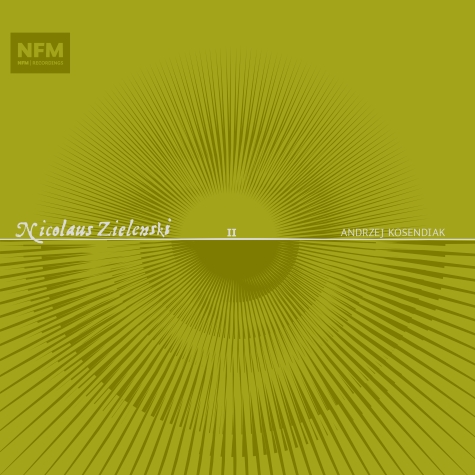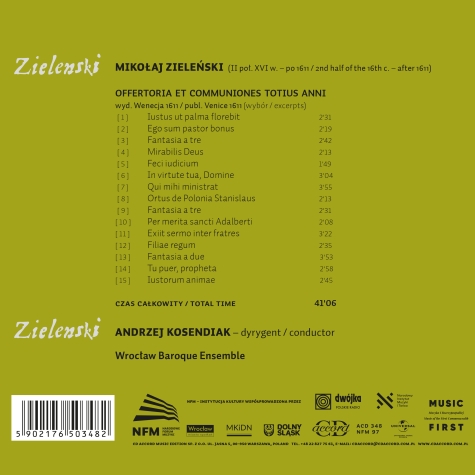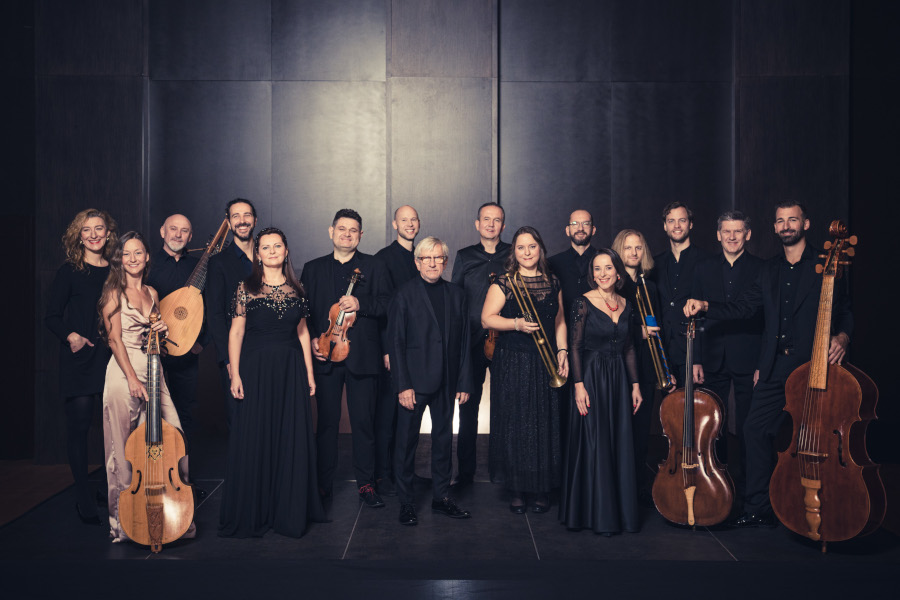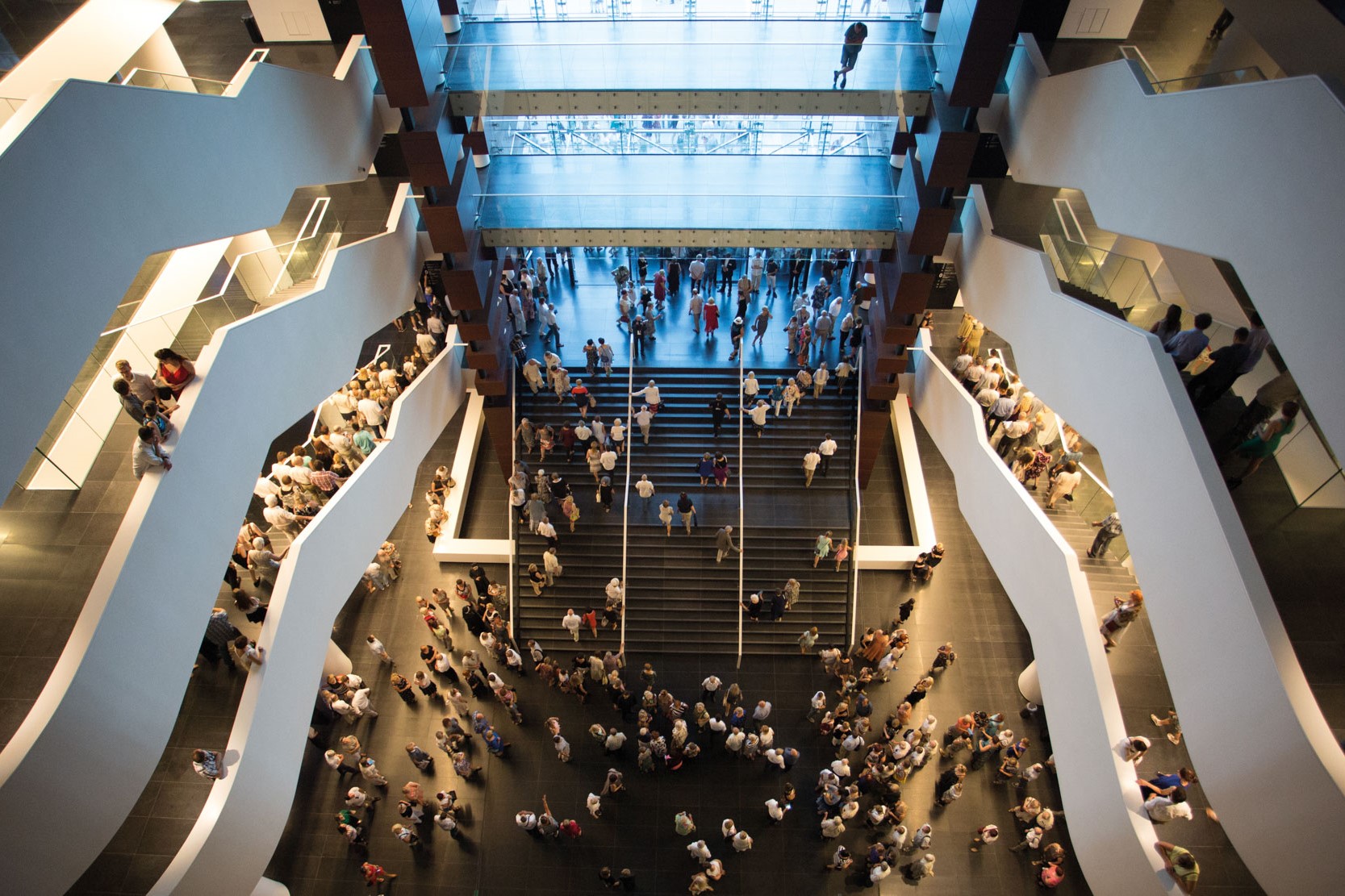Mikołaj Zieleński II
Mikołaj Zieleński II is the second monographic album by Wrocław Baroque Ensemble conducted by Andrzej Kosendiak with the work of one of the most interesting early Polish composers (the first album of WBE with Zieleński's works was honoured with a Fryderyk 2021). The album contains works from the collection Offertoria et communiones totius anni - this time the key to their selection was their designation for feasts or commemorations of patron saints associated with Wrocław, Lower Silesia, and also with Poland.
Album release date: 30.05.2025
Publishers: NFM 97 , ACD 348
Performers:
Andrzej Kosendiak – conductor
Wrocław Baroque Ensemble
Mikołaj Zieleński’s collection of offertories and communions, comprising 110 compositions, is probably the most important early Baroque Polish musical print. Firstly, it is very extensive – in Polish musical heritage of the 17th century, so many works by no other composer have been heard to survive to this day. Secondly, in my opinion, it is the most significant collection of works by a Polish composer from the early Baroque period in terms of artistic value. This work deserves to be widely known and performed. That is why we are continuing our recording work, the result of which is another CD with repertoire from this collection. Offertoria et Communiones totius anni are musical arrangements of offertories and communions for the entire liturgical year. Nearly all the pieces are accompanied by information about its intended use for a given holiday or occasion (a register in the form of a 12-month calendar with additional indications was added, too). The previous album was based on the history of salvation, this time the key to choosing the works for the album was their designation for feasts or commemorations of patron saints associated with Wrocław, Lower Silesia, but also with Poland. The album therefore contains works dedicated to the following saints: Stanislaus and Wojciech – patrons of Poland; John the Baptist – patron of Wrocław Cathedral; John the Apostle and Evangelist – patron of the former chapel of the Wrocław city hall; Jadwiga of Silesia – wife of Henry I the Bearded, Duke of Wrocław (together they founded the monastery of the Cistercian Sisters in Trzebnica) and Dorothy and Wenceslaus – together with the aforementioned Stanislaus, they were patrons of the three communities that created Wrocław: Polish, German and Czech. It should be emphasised that the National Forum of Music, where the recording was recorded, is located near the Gothic church dedicated to the latter three saints. It was founded in the second half of the 14th century to commemorate the agreement on the rights to Silesia concluded between the Polish king Casimir the Great and Charles IV of Luxembourg, the ruler of Bohemia, while its patron saints symbolised Bohemia (St Wenceslaus), Poland (St Stanislaus), and German settlers (St Dorothy).
The works on the album are complemented by three instrumental fantasies, which have survived to this day in an incomplete form (the part of the highest voice has been lost). In the recording, we used the reconstruction of the missing part prepared by Prof Marcin Szelest.
During the recording sessions, we used instrumentation typical of the first half of the 17th century, we also applied ornaments, diminutions and improvisations as close as possible to the composer’s intentions and the performance practice of that era. In this way, we tried to achieve the sound of the works as close as possible to Zieleński’s times.
It is worth emphasising the fact […] that it was in Wrocław City Library (Stadtbibliothek Breslau) that the only complete print of offertories and communions, coming from the Church of St Bernardine, was once kept, which, combined with the entire context resulting from the selection of works, means that this album can be considered “Wroclavian”.
Andrzej Kosendiak










